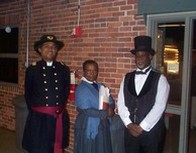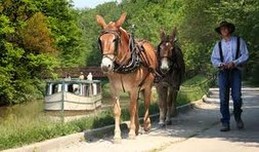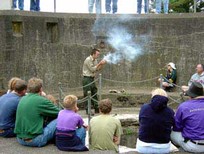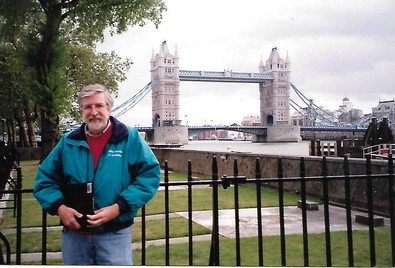John Veverka & Associates
Main menu
- Home Page
- Our Range of Services
- Separator 2
- Interpretive Coaching
- Interpretive Planning
- Interpretive Plan Outline
- Interpretive Training
- John Veverka Resume
- Qualifications
- NEW Advanced Interp. Text Book
- Separator 11
- InterpNEWS
- Separator 12
- Library
- Expert in Interpretation
- JVA NEWS, Courses and Updates
- Certificates
- Separator 47
- Planning/Design of Interpretive Panels
- Separator 48
- Interpretive Writing
- Separator 49
- Interpretive Writing Course
- Separator 50
- Interpretive Trails Course
- Separator 56
- Interpretive Panels Course
- Separator 55
- Introduction to Heritage Interpretation Course
- Separator 54
- Interpretive Planning & Design of Marketing Brochures Course
- Training for Interp. Trainers
- Separator 57
- Interpretive Exhibits Course
- Separator 58
- Interpretive Master Planning Course
- Separator 59
- Interpretive Planning for Scenic Byways.
- Critiquing and Coaching Interpretive Staff
- Separator 31
- Advanced Interpretive Planning
- Interpretive Training Center Course Catalogue
- Separator 32
- Interp. for International Visitors course.
- Separator 33
- Interpretive Exhibits Evaluation
- Separator 34
- Interp. Center Feasibility Analysis Course.
- Separator 35
- Interp. for Commercial Tour Providers
- Separator 36
- Interpretive Researchers Guide for Visitor Studies
- Separator 37
- Separator 13
- Interp. Planning for Historic Homes
- Separator 14
- Heritage Interpretation Training Center
- Interpretive Planning for Botanical Gardens
- Separator 15
- An introduction to planning and presenting live interpretive programs and tours for Museum/Heritage Site Docents and Volunteers.
- Developing Marketing Plans for Heritage & Tourism Sites and Attractions
- Separator 16
- Interpretation Book Store
- Separator 17
- Heritage Interpretation Resource Center
- Interpretive Planning for Historic Farms
- Developing Successful Partnerships
- Developing Interpretive Outreach Programs
- Community Interpretation Planning
- Interpreting Gravestones and Historic Cemeteries
- Using Interpretation to Accomplish Management Objectives.
- An Interpreters Guide for Survival Economics.
- Separator 18
- Innovative Strategies for Interpretive Media and Services Planning.
- Separator 19
- A Curators Guide for Developing Gallery Tours.
- Advanced Interpretive Writing - Technical Publications
- Page 2
- Advanced Interpretive Services for Managers, Supervisors, Team Leaders and Sr. Staff.
- Separator 20
- Advanced Interpretation for Chiefs of Interp. - Interpretive Managers - Regional Interp. Specialists
- Interpreting Critical Issues.
- Separator 21
- Developing Commercial Interpretation for Resorts, Cruise Ships, Campgrounds and Tourism Attractions.
- Separator 38
- Planning and developing a new commercial tour guiding business.
- Separator 39
- Interpretive Evaluation, Visitor Studies and Site Assessment Center
- Separator 40
- The Center for Interpretive Planning Advancement & Excellence.
- Developing Requests for Proposals (RFPs)
- Separator 41
- Planning and Facilitating Focus Workshops
- Separator 42
- InterpNEWS Advertising Details
- Planning for Interpretive Experiences
- 40 Years a Heritage Interpreter
- Separator 43
- Interpretive Techniques - The Rest of the Story Course
- Separator 44
- Certified Professional Interpretive Planner Certificate
- Certified Professional Interpretive Program
- Certified Professional Interpretive Trainer certificate program.
- Separator 53
- Certified Professional Heritage Interpreter certificate program.
- Separator 52
- Certified Professional Interpretive Writer certificate program.
- Visitor motives for attending interpretive programs.
- Separator 45
- Exhibit Rehab Course
- Separator 46
- Developing Training Workbooks & Manuals
- Separator 22
- Planning for Railroad Museums and Sites.
- Separator 51
- Climate Change Interpretation Course.
- Separator 23
- When there's nothing left but the story - interp. storytelling.
- Separator 24
- Interpreting Legends Myths and Fables
- Separator 25
- InterpSHARE - Seminars 2022
- Separator 26
- Interpreting Invasive Species
- Separator 27
- Interpretiing Edible Insects
- Separator 28
- Interpretaive Planning for Climate Change
- Separator 29
- HITC Climate Crisis Resource Center
- Separator 30
- Separator 5
- PUP Members Only
- Starting a new Interp Consulting Business
- Panels 4 Week Course
- Separator 8
- Interpretive Writing - 4 Week Course
- Marketing - 4 Week Course
- Separator 7
- Intro to Interpretation - 4 Week Course
- Separator 9
- Interp Climate Change - 4 Week Course
- Separator 10
- Exhibit Rehab 4-Week Course
- Separator 6
- Level 1
- Johns Interpreters Blog
- Separator 4
- Economics for Heritage Interpreters
Critiquing and Coaching Interpretive Staff

A supervisors guide to
Critiquing and Coaching Your Interpretive Staff
Eleven Units, 1.6 CEU Credits


Interpretive Coaching and critiquing is often a process where the presenter, if they know they are going to be critiqued, are a nervous mess. No one really gets in line for the joy of having their program or guided tours critiqued. Not even me. When I was a seasonal interpretive naturalist with Ohio State Parks, knowing I was going to be critiqued by the Regional Interpretive Specialist made for a long day - waiting for the white State Van to pull up. Yikes. But the evaluator turned out to be a coach - and that made all the difference in the world.
This course is designed for supervisors, museum education curators, lead interpretive naturalists and any staff member charged with the job of critiquing staff presenting live interpretive programs, tours, or related live experiences. Here are proven processes, activities and guidelines for being a great evaluator/critiquer and interpretive coach.
Here is a course overview - meet me at YouTube: https://youtu.be/umNk_M4SlsU
Course Content:
Unit One - What are the standards you're critiquing against? Do you have a check list of items or
procedures you are looking for? Here is an example check list that a critique might
include "how well you did - did you cover all these points"? At this level we may be
critiquing, but not yet coaching. The coaching comes next.
Unit Two - Does you staff know the standards they are being critiqued against (staff training)
- For the program or presentation (theme, objectives, teaching aides, etc.)
- For the interpreter (uniform, tour management, how they respond to questions, etc.).
Unit Three - Setting up the staff critiquing experience - how, when, where and what will you be critiquing?
Unit Four - Creating the critiquing checklist and observation recording form you can use.
Unit Five - Critiquing the program - and critiquing the presenter - you're on!
Unit Six - Critiquing techniques you can use to evaluate the program and presenter (secret visitor, program observations, video of the program or presentation and other techniques.
Unit Seven - The program/tour or activity is over, you have made and recorded your observations and ideas about both the program content itself, and how the interpreter presented and conducted the program or experience. Preparing for the good news and the suggestions for improvements.
Unit Eight - Let the Coaching begin - how to prepare for the coaching interaction and interacting with your staff member.
Unit Nine - Nineteen steps for successful coaching experiences and interactions.
Unit Ten - The coaching follow-up. You did your critique, you coached your staff member, now you need to follow-up to see if the coaching you did "took hold" and now you see improvements in both the program and the staff members interpretation skills. How will you do that?
Unit Eleven - Final review of YOUR coaching skills - what do you think you need to do better as a interpretive coach?
About the Instructor: Prof. John Veverka
Interpretive planning - London Heritage Sites
- B.S and M.S in Heritage Interpretation - The Ohio State University (Taught a course on
Interpretive Master Planning - wrote the first Interpretive Planning Text book).
- Ph.D. program in Interpretation at Michigan State University. (Taught introduction and
advanced interpretive courses including interpretive planning units.)
- Adjunct Professor Heritage Interpretation (summer heritage tourism institutes) North
Carolina State University, New York State University.
- NAI Certified Interpretive Planner and Trainer
- NAI Fellow
- Certified Professional Heritage Interpreter (Canada).
- Author of several interpretive planning/training college text books.
- Publisher of InterpNEWS - the International Heritage Interpretation e-Magazine.
- 40 years of interpretive planning, training and writing experience.
Estimated time to complete this course is 16 hours but you can take your time if you are working on a planning project using the course as your guide.
When will the course start? You can start this course at any time and work at your own pace. The cost of the 16 hours of training is $175.00 USD, which can be paid for by credit card or PayPal below (Buy Now Button).
John Veverka
jvainterp@aol.com
SKYPE: jvainterp
Phone: 517/803-6605